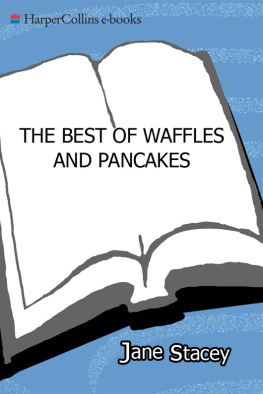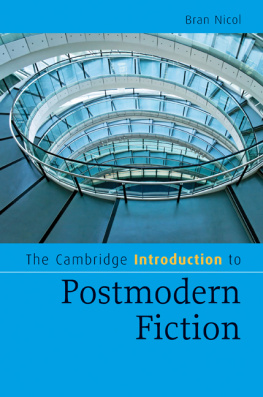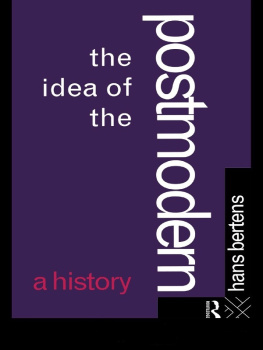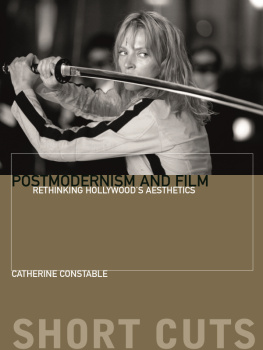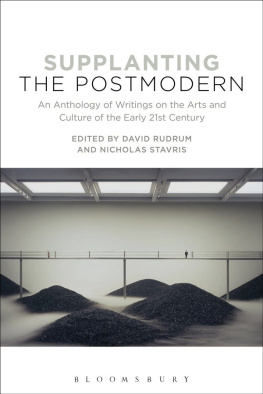RE: READING THE POSTMODERN
CANADIAN LITERATURE AND CRITICISM AFTER MODERNISM
EDITED BY
ROBERT DAVID STACEY
REAPPRAISALS: CANADIAN WRITERS
UNIVERSITY OF OTTAWA PRESS
OTTAWA
ACKNOWLEDGEMENTS
A book is always a collaborative effort, and this one especially so. The volume you have in your hands had its beginning at the annual Canadian Literature Symposium at the University of Ottawa in May 2008. Re: Reading the Postmodern brought together students, academics, independent scholars, and writers from across the country to discuss the history and theory of Canadian postmodernism. My thanks go to everyone whose participation made the event such a success, and especially to the large group of student volunteers without whose help such a large undertaking would not have been possible: Jordan Berard, Suzanne Bowness, Jessica Brichta, Carmela Coccimiglio, Gene Kondusky, Maude Lapierre, Matthew MacDonald, Marissa McHugh, Kathleen Patchell, Zac Schnier, and DJ Sparkle (a.k.a. Amber Yared). Particular thanks must go to Malcolm Sutton, my graduate assistant and co-organizer, for his enthusiasm and hard work at every stage of the project. The administrative staff at the University of Ottawas Department of English was a tremendous help; thanks especially to Nadine Mayhew and Marie Tremblay-Chnier, who I fear was driven into early retirement by my various confusions. I am grateful to SHRCC for providing much-needed funding in the form of an Aid to Research Workshops and Conferences grant and to the University of Ottawa and its Faculty of Arts for further financial support.
I owe a debt of gratitude to my colleagues at the University of Ottawa for their encouragement and advice with regard to the organization of the symposium and the subsequent publication of this book. David Rampton, Janice Fiamengo, and Cynthia Sugars, all previous editors in the Canadian Writers: Reappraisals series, offered wise counsel, and Gerald Lynch, general editor of the series, was especially generous with his time and much-needed (by me) good sense. I thank our newest Canadianist colleague, Jennifer Blair, for allowing herself to be pulled into the orbit of this project; she proved both a patient sounding board and clear-sighted reader throughout the vetting and editing process of the book. Tom Allen, Victoria Burke, Frans De Bruyn, Lauren Gillingham, Craig Gordon, Jennifer Panek, Anne Raine, and Geoff Rector have all tolerated more talk of Canadian postmodernism than is strictly necessaryor healthy; I thank them all for contributing to one of the most positive work environments I can imagine.
Thanks to Josephene Kealey for her work on the manuscript and to the readers for the press who offered helpful suggestions for improvement. To everyone at the University of Ottawa Press, especially Eric Nelson and Marie Clausn, thank you for your great care in seeing the manuscript through the publication process. Thanks also to Meaghan Craven for her careful copy-editing of the manuscript.
Finally, all love to Jolanda, Arlo, and Casper. This book is for you.
INTRODUCTION: POST-, MARKED CANADA
ROBERT DAVID STACEY
Read the labels. The labels are coming home.
Michael Ondaatje
Coming Through Slaughter
At one time in the academic and intellectual life in this country, postmodernism was a powerful word. Behind its use in the various discourses of literature, visual art, and architecture lay significant institutional forces that channelled a genuine enthusiasm for an idea of the postmodern among critics, educators, and readers (less often producers) into publishing contracts, academic conferences, and university syllabi. While it is true, as Frank Davey points out in Contesting Post(-)modernism, that there have never been Canadian journals or publishing houses that positioned themselves as specifically postmodern enterprises, it is equally true that careers were built or solidified under the banner of the postmodern (or in opposition to it), texts were promoted and taught according to its theoretical assumptions (or, more commonly, they were read in the context of debates about those assumptions), and existing journals and publishing houses were swept up in the same zeitgeist that saw postmodernism and the postmodern become part of the common vernacular in academic and artistic circles throughout North America and Europe.
are among the most cited in the present collection as well. That this is so suggests that their ideas remain relevant to an understanding of the postmodern, even when the effort has been made, as it has here, to broaden and complicate that understanding beyond the dominant Canadian view.
It is a fact that none of the preceding theorists is referred to in the following pages as often as Hutcheon herself, and no single text is cited as often as The Canadian Postmodern, a distinction that speaks to its overwhelming influence on the practice of contemporary Canadian criticism more generally. This fact is underscored by a number of essays in this collection, many of which take up an oppositional or revisionist stance vis--vis her work, as in the case of essays by Pauline Butling, Stephen Cain, Adam Carter, Alexander MacLeod, Christian Bk, and Susan Rudy. But the continuing value of Hutcheons reading of the Canadian postmodernalready implicit in the scale of the reaction to it hereis more positively expressed in essays by Deborah Bowen, Jason Wiens, Herb Wyile, Jenn Stephenson, and (more obliquely) Jennifer Blair.
). A spirit of debate is very much evident in the following pages; no single understanding of Canadian postmodernism will emerge from this volume, and properly so. What is perhaps more significant than the absence of a stable or singular definition, however, is that each definitional claim knowingly stakes itself against its competitors. To write about postmodernism in Canada, even now, is to acknowledge that literary history is a field of competing interests and desires, just as it is to recognize that debates about the meaning and value of postmodernism must inevitably re- trace the rejection of totalization that postmodern theory, in all its various articulations, takes as its point of departure.
), the feeling that the Canadian postmodern, as both an aesthetic and a field of critical enquiry, has slipped from the blind spot of the now to finally appear (however distorted) within our historical rear-view has grown quite strong, a point explicitly underscored by the title of Hutcheons own retrospective essay in this volume, The Glories of Hindsight.
So it was that when Davey wrote Contesting Post(-)modernism in 1994, he was already speaking of it in the past tense. By the mid-90s, even Hutcheon had mostly abandoned postmodernism as her principal subject and chief theoretical model (a shift that Adam Carter highlights in his intensive reading of Hutcheons theory of postmodern irony), leaving it to others who, while they continued to invoke the postmodern in the classroom when it came time to address obviously postmodern works (obviously, because they had already been interpreted as such, ideally by Hutcheon herself), increasingly employed alternative models and vocabularies for addressing contemporary writing in their own research.
Like Wyile, who in Attack of the Latt-drinking Relativists traces in recent historical fiction the rejection of a postmodern tradition of narrative experimentation, a number of the critics assembled here describe some sort of historical shift away from established postmodern practice. Pauline Butling, for instance, speaks of a tradition of innovation that spans three generations, but limits her use of the term postmodern to the poetry and poetics of the 1970s and 1980s (); Sylvia Sderlind explores the form of Canadian ghostmodern texts, which she sees effecting the transition from modernism to postmodernism; and, like Cain, Jenn Stephenson delineates a generational shift within and away from postmodernism itself, contrasting the postmodern historiographic metadramas of the 1970s with more recent millennial metadramas.
Next page

